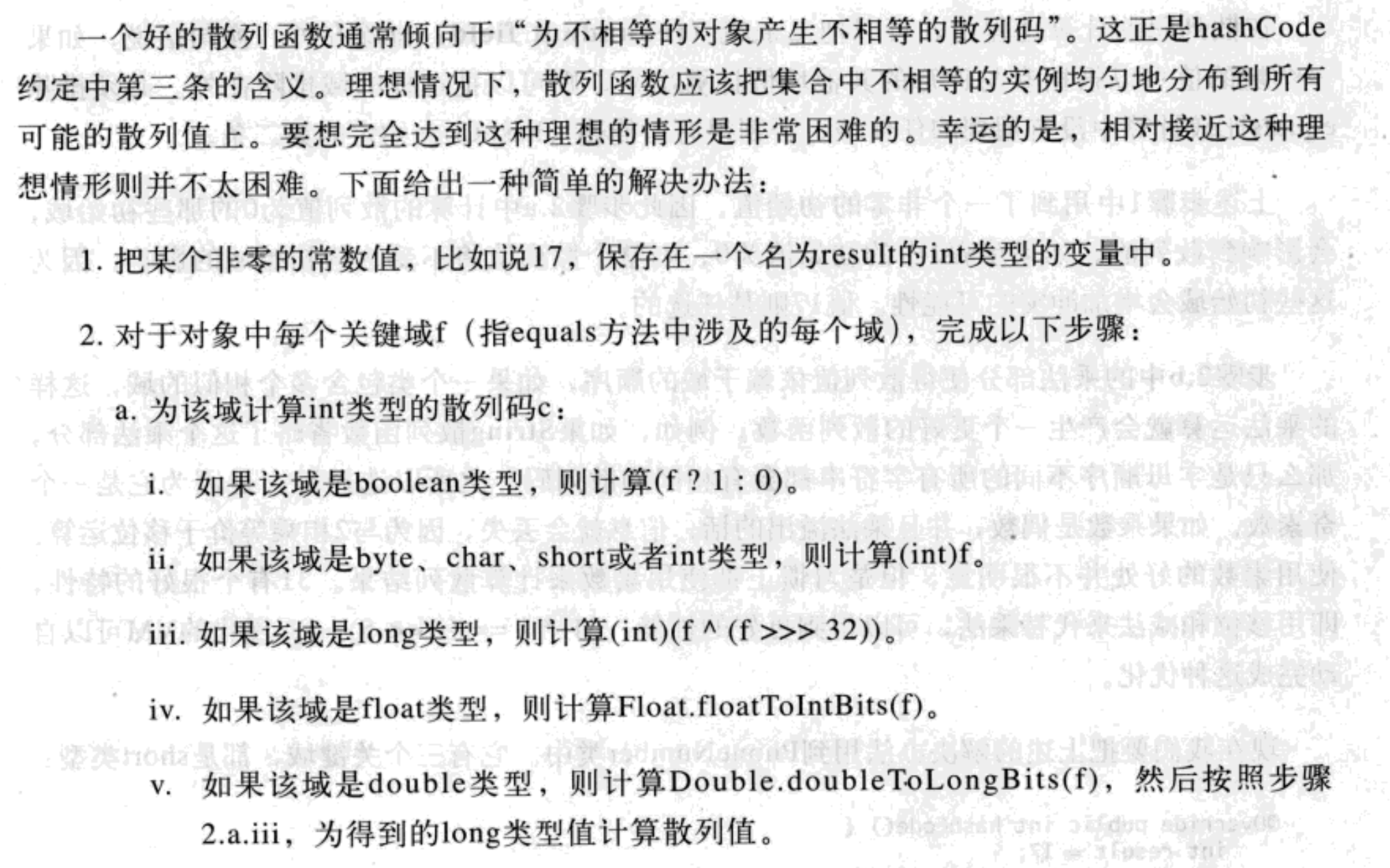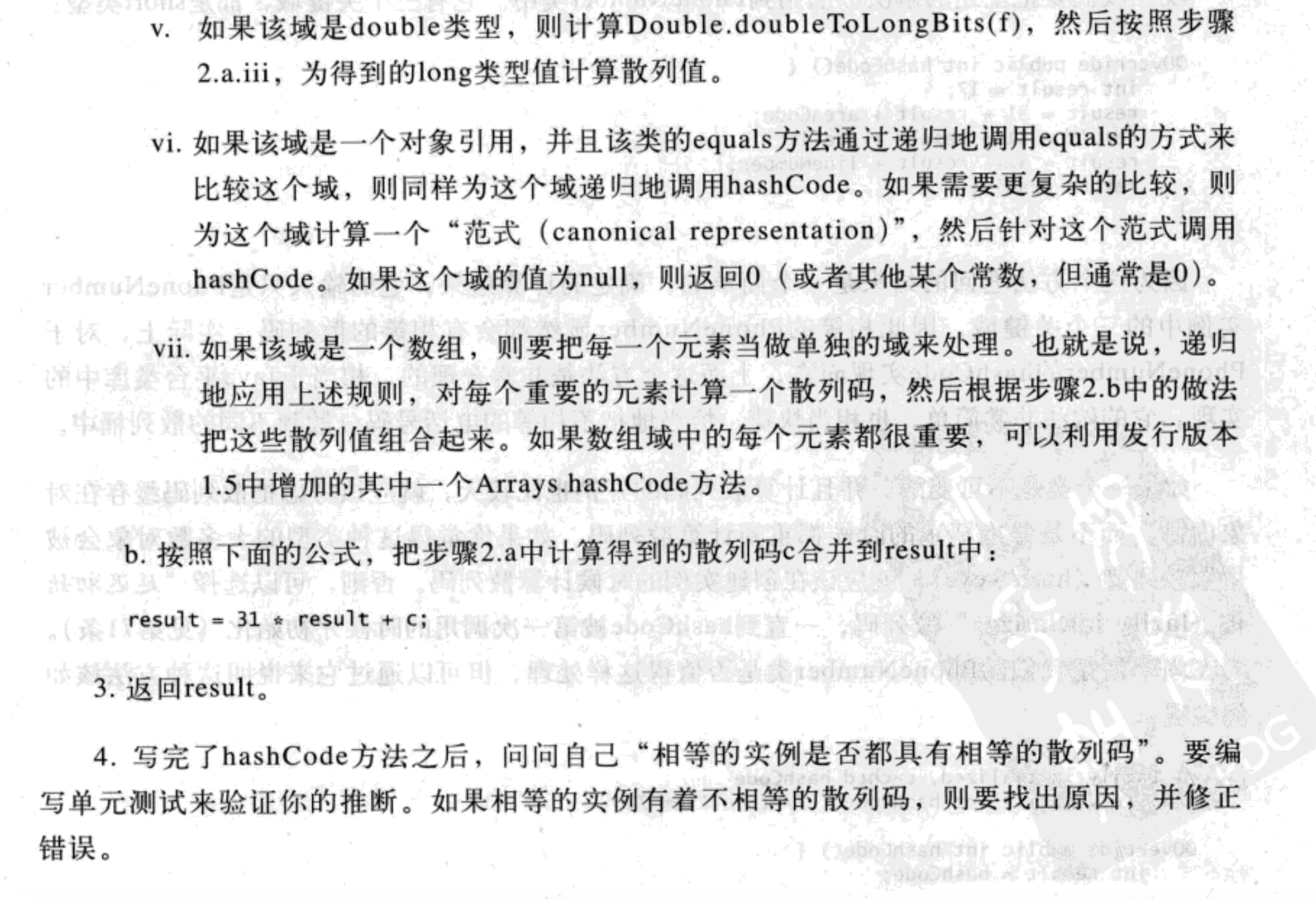【一】重写equals方案的规则
equals方法本来的原则
1、类的每个实例本质上都是唯一的。
2、不关心类是否提供了“逻辑相等”的测试功能
3、超类已经覆盖了equals,从超类继承过来的行为对于子类也是合适的。
4、类是自有的活是包级私有的,可以确定equals方法永远不会被调用。这个时候就要重写,防止被外界调用。
equals方法实现了等价关系。
1、自反性:对于任何非null的引用值x.则必须满足x.equals(x)必须返回true
2、对称性:对于任何非null的引用x,y. x.equals(y)返回true,则y.equals(x)必须返回true
3、传递性:对于任何非null的引用x,y,z。则x.equals(y)返回true,y.equals(z)返回true.则x.equals(z)必须返回true
4、一致性:对于任何非null的引用x,y。只要对象里的信息没有被修改。x.equals(y)多次调用,要么一直返回true,要么一直返回false
5、对于任何非null的引用值x.x.equals(null)必须返回false
【二】重写hashCode方法的规则
覆盖了equals时,总要覆盖hashCode方法。


一个重写hashCode和equals的实例

import org.apache.commons.lang3.StringUtils; /** * */ public final class Category { private volatile int hashCode = 0; private final boolean nullOrEmptyIsCached; private final int initialCapacity; private final long maxSize; private final long timeOut; private final String cacheKey; public Category(int initialCapacity, long maxSize, long timeOut, String cacheKey, boolean nullOrEmptyIsCached) { this.initialCapacity = initialCapacity; this.maxSize = maxSize; this.timeOut = timeOut; this.cacheKey = cacheKey; this.nullOrEmptyIsCached = nullOrEmptyIsCached; } @Override public int hashCode() { int internalHashCode = hashCode; if (internalHashCode == 0) { int nullOrEmptyIsCachedInt = nullOrEmptyIsCached ? 1 : 0; internalHashCode = 31 * internalHashCode + nullOrEmptyIsCachedInt; internalHashCode = 31 * internalHashCode + initialCapacity; int mS = (int) (maxSize ^ (maxSize >>> 32)); internalHashCode = 31 * internalHashCode + mS; int tO = (int) (timeOut ^ (timeOut >>> 32)); internalHashCode = 31 * internalHashCode + tO; if (StringUtils.isNotEmpty(cacheKey)) { internalHashCode = 31 * internalHashCode + cacheKey.hashCode(); } hashCode = internalHashCode; } return internalHashCode; } @Override public boolean equals(Object obj) { if (this == obj) { return true; } if (!(obj instanceof Category)) { return false; } Category otherCategory = (Category) obj; return this.nullOrEmptyIsCached == otherCategory.nullOrEmptyIsCached && this.initialCapacity == otherCategory.initialCapacity && this.maxSize == otherCategory.maxSize && this.timeOut == otherCategory.timeOut && (this.cacheKey == null ? this.cacheKey == otherCategory.cacheKey : this.cacheKey.equals(otherCategory.cacheKey)); } //省略sett,gett }
